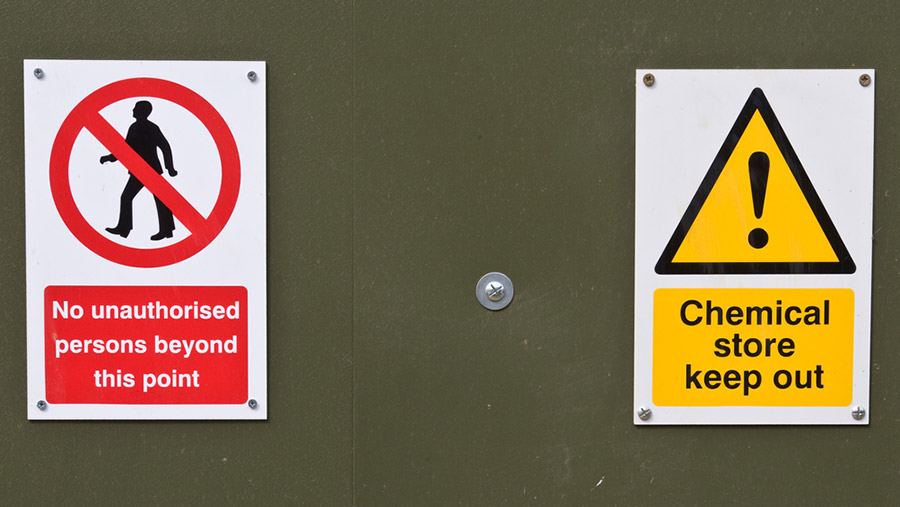Branded parallel pesticides ‘could cause confusion’
 © Tim Scrivener
© Tim Scrivener A number of parallel pesticide imports have come onto the market with the same name as popular branded originals, potentially causing confusion for users on farm.
Parallel products are a legitimate way for distributors and growers to source cheaper pesticides from within the EU or plug shortages of key products.
Typically, these imports have a different name to the compositionally identical reference product in the UK, making it easy to differentiate in stores and farm records.
However, parallel importer PSI (UK) is marketing a number of products that have the same trade name as the UK reference product.
Farmers Weekly understands this is a recent development and products include cereal fungicides Adexar, Ceriax and Talius, cereal plant growth regulator Terpal and maize herbicide Callisto.
Commercial issue
Actives
- Adexar epoxiconazole + fluxapyroxad
- Callisto mesotrione
- Ceriax epoxiconazole + fluxapyroxad + pyraclastrobin
- Talius proquizanid
- Terpal ethephon + mepiquat chloride
The Health and Safety Executive (HSE), which regulates all pesticides, including parallel imports, is only concerned with the safety of the pesticide and its packaging and does not become involved with commercial issues.
Under current legislation there has also been no infringement of trademark laws and agrochemical manufacturers cannot prevent the brand duplication.
Rob Gladwin, head of marketing for crop protection at BASF for the UK, Ireland, Nordic and Baltics, says growers need to be aware that these parallels exist and if necessary, check the product’s Ministerially Approved Pesticide Product (MAPP) numbers to ensure they receive what they ordered.
“Some growers are happy to accept parallel products, but there are also those who, when they order BASF Adexar, expect BASF Adexar.
“In these cases, growers should check the product MAPP number matches the original product in the HSE pesticides database,” he explains.
Beware fakes
Another potential pitfall of parallel imports is increased risk of counterfeit pesticides entering the market, according to Hazel Doonan, sector head of crop protection at the Agricultural Industries Confederation (AIC).
Unlike France, where parallels cannot be repackaged, UK imports can, offering the opportunity for criminals to water down products or fill containers with pesticide that is not up to specification.
This can result in costly control failures or increased dangers to sprayer operators or the environment.
“You need to look suppliers in the eye and ask them if the product is genuine. Otherwise, it is the same old thing – if it is too cheap, it is probably too cheap to be genuine,” says Ms Doonan.
What is a parallel pesticide import?
It is possible to source a pesticide product authorised for sale and use in another EU member state using a parallel trade permit granted by the Health and Safety Executive (HSE).
Parallel imports give distributors and end users the chance to supply or purchase competitively priced products and can help with continuity of supply when the primary producer has manufacturing difficulties or demand exceeds product forecasts in season.
The permit is granted when the HSE deems the “source product” identical in composition to one already approved for use within the UK – called a “reference product”.
The criteria are that the source product must be:
- Manufactured by the same company or associated undertaking or under licence, using the same manufacturing process.
- Of the same specification and content of active substance, safeners and synergists and in the same formulation.
- The same or equivalent in the co-formulants present and the packaging material, size or form.
Once approved, the source product will be allocated a MAPP number like any other approved plant protection product and must also carry the original batch number from the source member state.
MAPP numbers for the same parallel import product can vary if the source member state varies, so a product can have multiple MAPP numbers in these cases.
The source product inherits any Extension of Authorisation for Minor Use (EAMU) granted to the UK reference product.
Pesticide watch
Crops is working with Gatekeeper agronomists to highlight key pesticide rule changes and the potential implications, keeping you on the right side of the law and aiding on-farm record keeping.
Sentinel is a decision support tool linked to Gatekeeper crop management software, a programme that helps arable farmers with record-keeping and legislation issues. ![]() More details visit Farmplan or call 01594 545011
More details visit Farmplan or call 01594 545011

